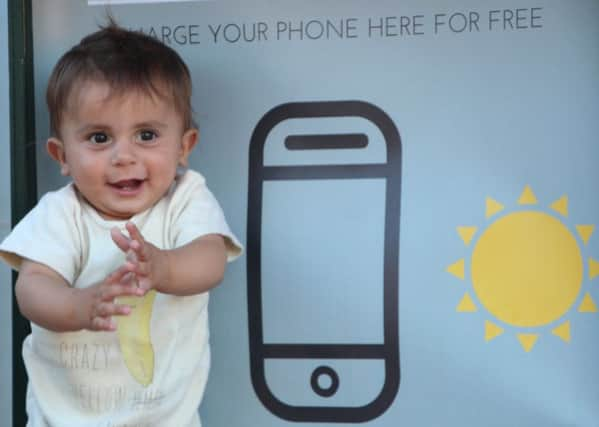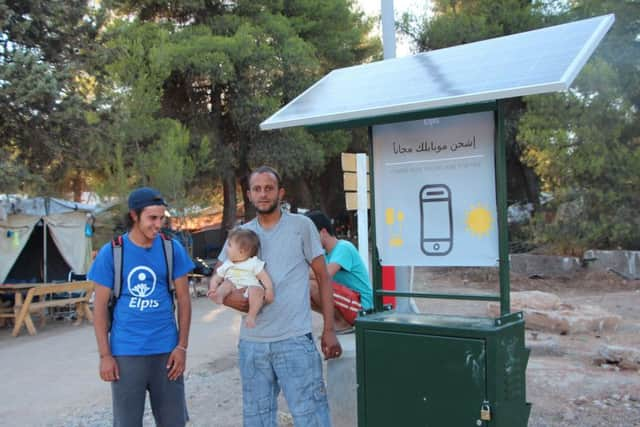Medal awarded to creators of refugees' solar charger


Fourth-year ecological and environmental science students Alexandros Angelopoulos and Sam Kellerhals created the units, which generate electricity for 12 mobile devices per hour and run for ten hours a day, and installed them in camps in Greece.
Now they are to introduce the Project Elpis technology to refugee camps in Serbia, where more than 7,000 refugees have been trapped since borders with the European Union closed two years ago.
Advertisement
Hide AdAdvertisement
Hide AdTwo devices will be installed in Sombor and Obrenovac, two camps in northern Serbia, in January, while the pair also plan to send units to communities in Africa which do not have access to electricity.


Angelopoulos met refugees when he was working for a marine conservation charity on the Greek island of Samos two years ago as the first refugee boats began to arrive. “Refugees were coming up to me and asking desperately if they could use my phone,” he said. “That triggered the idea and we realised we needed to use the skills we had to solve the problem. When we went to camps, we saw that boredom was starting to set in, people are trapped there for such a long time. So, we have also created educational content and ebooks translated into Farsi and Arabic, which the refugees can download on to their phones by standing near the units.”
The solar-powered units generate electricity for 12 devices per hour and run for ten hours a day – providing electricity to 3,600 refugees in one month.
The pair was awarded the university’s Principal’s Medal at a ceremony last month.
Professor James Smith, vice-principal for international, at the University of Edinburgh, said: “Tackling global issues has always represented the essence of Edinburgh’s international ambitions. Project Elpis is a great example of a student-led project that makes a practical contribution to the emerging humanitarian crisis.”


Each unit costs £850 to produce. The students raised their initial target of £4,000 through a crowdfunding campaign. The project received financial backing from the University’s Scholarships and Student Funding department and support from the University Chaplaincy.
The pair, who are due to graduate in the summer, hope to find a way to make the project financially viable, allowing them to run the organisation as an NGO full time.